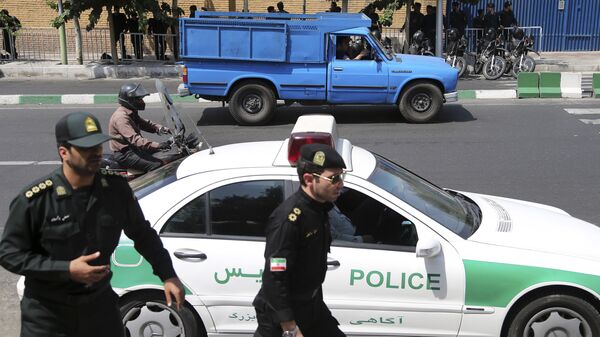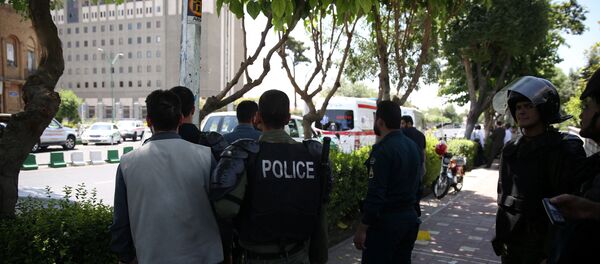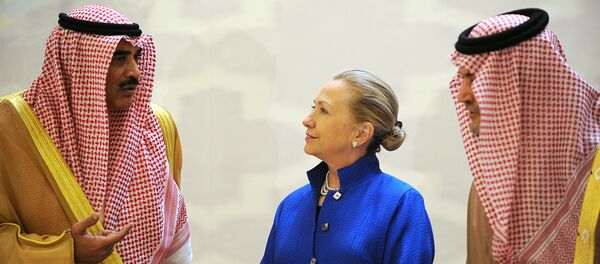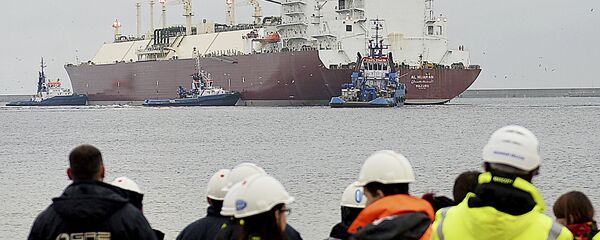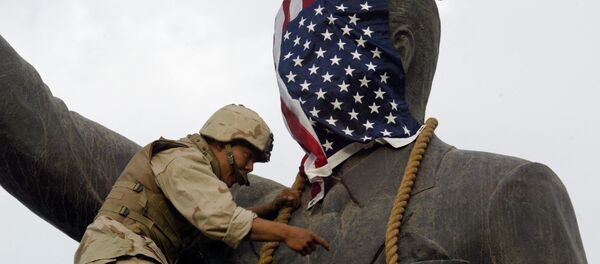Iran has just been hit by multiple terrorist attacks in its national parliament and the revered Ayatollah Khomeini mausoleum, completely shattering the Western-promoted myth that the Islamic Republic is the “largest state sponsor of terrorism”. While cynics will inevitably suggest this might be a stereotypical case of “blowback”, the truth couldn’t be more different.
It’s unimaginable that either Hezbollah or the Houthis would dare stage such a horrendous terrorist attack against their partner, hence why the “blowback” argument falls flat on its face if anyone takes the time to think about it.
This logically brings one around to wondering which other forces could have been behind the coordinated strikes, and the one on everybody’s mind is Daesh, which threatened the Islamic Republic during last year’s Ramadan in what Iran described as “one of the biggest plots” ever.
If it was indeed Daesh which launched the latest attacks in Tehran, then it would mean that the ultra-sectarian group succeeded in carrying out its first-ever operation on Iranian soil against the majority-Shiite nation whose people it has officially condemned to death for being “apostates”.
It would also indicate that the group is dedicated to seeking revenge against Iran for its decisive support in helping the Syrian Arab Army cripple the terrorists in their own self-declared “caliphate”.
Just last year Iran announced that the “Kurdish Democratic Party of Iran” (KDPI) carried out attacks against the Islamic Revolutionary Guard Corps along the western borderland region with Iraqi Kurdistan, and the country’s media pulled no punches in describing the perpetrators as terrorists.
This might sound strange to Western ears accustomed to hearing nothing but praise for Kurdish militant groups in the Mideast given the media-driven myth surrounding their anti-Daesh operations, but in reality the situation is much more complex. Individuals ordinarily sympathetic to these ethnic forces in general might be surprised to learn that the KDPI condemned Iran last year as the “Shiite ISIS”, which explains why Tehran takes such a strict attitude towards the group in designating it as the terrorists that they truly are.
Moving back along the timeline, most people shouldn’t have forgotten about the spate of assassinations against Iranian scientists during the height of the country’s nuclear energy standoff with the West.
Tehran blamed the US and Israel for these killings, and The Jerusalem Post published an article in August 2015 titled “Israel Behind Assassinations Of Iran Nuclear Scientists, Ya’alon Hints”, suggesting that the then-Israeli Defense Minister slyly let the cat out of the bag in an interview that he had just given during that time to Germany’s Der Spiegel. Tel Aviv never formally took responsibility for killing civilians in Iran, though it has consistently condemned the country’s nuclear energy program and its Mossad intelligence agency is widely regarded as having both the capabilities and motive for doing so.
Iran believes that the US took the MEK off of the State Department’s list of terrorist organizations because it’s planning to use it as a Hybrid War vanguard against the Islamic Republic in the future, and interestingly enough, former Saudi spy chief Prince Turki al-Faisal addressed the group’s large-scale public gathering in Paris last year where he implored them to seek regime change against Iran.
Finally, when speaking about the MEK and its reference to Saddam Hussein, there’s no avoiding the fact that the Iran-Iraq War (or First Gulf War) was an act of brutal state terrorism by Baghdad against the fledgling Islamic Republic launched in the tumultuous year following its 1979 Revolution.
Hundreds of thousands of Iranians lost their lives in what amounts to their version of the Soviet Union’s Great Patriotic War, though they ultimately succeeded in preventing their country’s disintegration at the hands of its foreign enemies.
The latest attacks in the country’s parliament and Ayatollah Khomeini mausoleum are a testimony to this fact, and should give cause to all serious Great Powers to unite behind Iran in its War on Terror if they truly aspire to see this global scourge eliminated once and for all.
The views expressed in this article are solely those of the author and do not necessarily reflect the official position of Sputnik.
